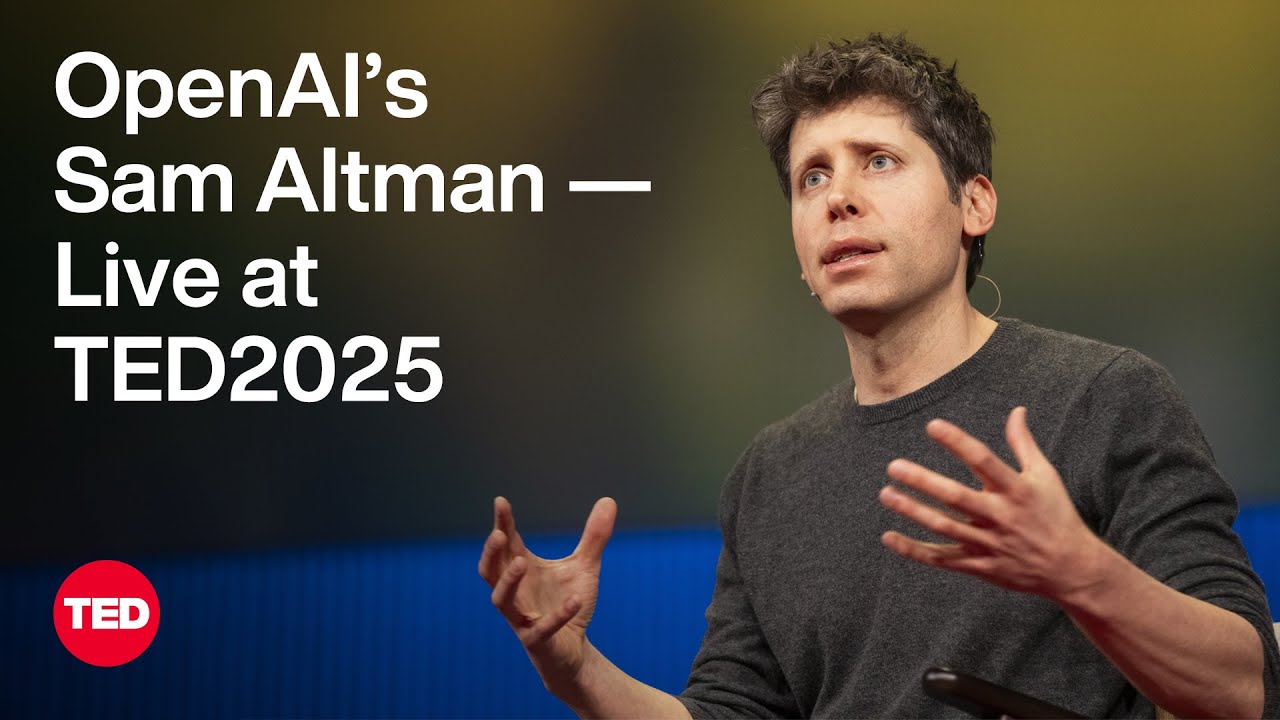In a TED2025 session, Sam Altman, CEO of OpenAI, discusses the advancements in AI, showcasing new models like Sora and addressing the ethical implications of AI-generated content, particularly regarding intellectual property and the need for new economic frameworks. He emphasizes the importance of safety in AI development, the potential for AI to enhance productivity across various industries, and the responsibility of developers to navigate the moral challenges associated with powerful AI technologies.
In a live TED2025 session, Sam Altman, CEO of OpenAI, discusses the rapid advancements in artificial intelligence (AI) and the implications for society. The conversation begins with Altman showcasing new AI models, including an image and video generator named Sora. The host expresses amazement at the capabilities of these models, particularly their ability to generate insightful content and visuals. Altman explains that the new image generation model is integrated with GPT-4, allowing it to leverage the intelligence of the overall model, which raises questions about the future of jobs and the evolving role of AI in creative fields.
The discussion shifts to the ethical considerations surrounding AI-generated content, particularly regarding intellectual property (IP) and the rights of creators. Altman acknowledges the importance of human creativity and the need for new economic models that respect the contributions of artists while allowing for the democratization of creativity through AI tools. He emphasizes the necessity of navigating the fine line between inspiration and infringement, suggesting that a new framework for compensation and consent may be needed as AI continues to evolve.
As the conversation progresses, Altman addresses the competitive landscape of AI development, particularly in relation to open-source models. He acknowledges the importance of open-source AI but asserts that OpenAI is committed to creating powerful models that prioritize safety and usability. Altman shares insights into the rapid growth of ChatGPT, highlighting its user base and the transformative impact of AI on various industries, including software development and scientific research. He expresses optimism about the potential for AI to enhance productivity and drive significant advancements in fields like medicine and physics.
The dialogue also touches on the risks associated with advanced AI, including the potential for misuse and the challenges of ensuring safety as AI systems become more capable. Altman discusses the importance of a preparedness framework to identify and mitigate risks before releasing new models. He acknowledges the concerns surrounding agentic AI—systems that can operate autonomously—and the need for robust safety measures to prevent unintended consequences. Altman emphasizes that safety and capability are increasingly intertwined, and that building trust in AI systems is essential for their adoption.
In concluding remarks, Altman reflects on the future his children will inherit, envisioning a world where AI is deeply integrated into everyday life, enhancing human capabilities and creating material abundance. He expresses hope that future generations will look back at the current era with a sense of nostalgia for the limitations of the past. Altman acknowledges the immense responsibility that comes with developing powerful AI technologies and reassures the audience of OpenAI’s commitment to navigating the moral challenges ahead while striving to benefit humanity as a whole.
